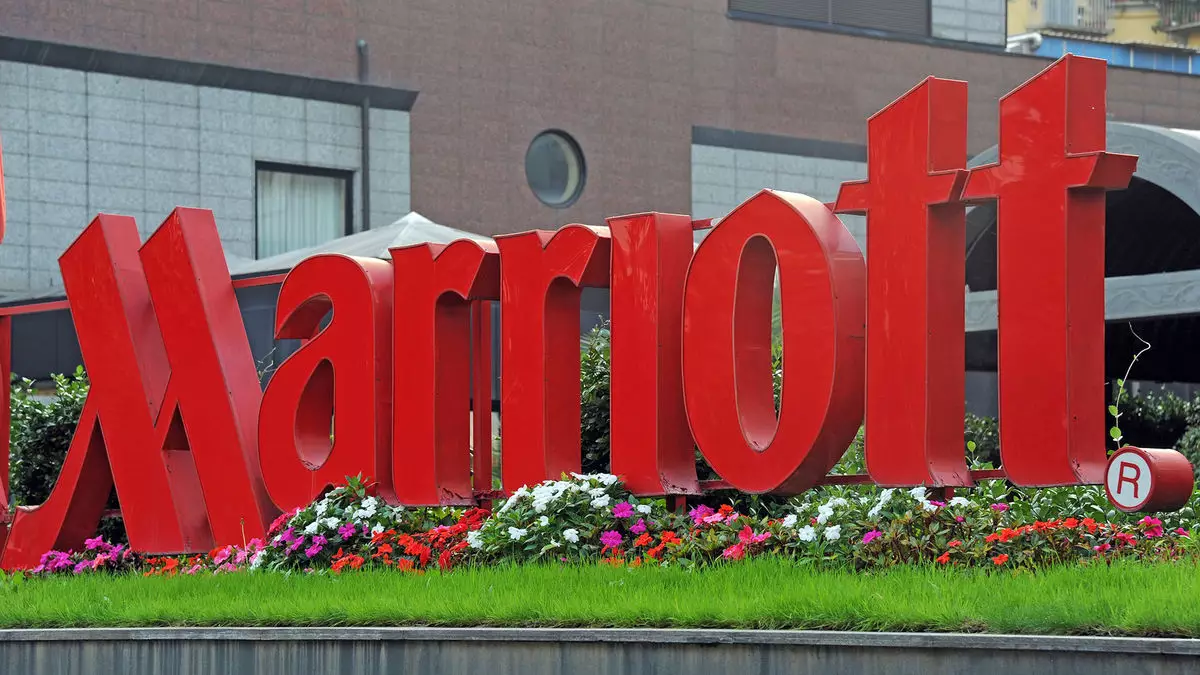The hospitality sector is particularly sensitive to political climates, with events such as elections often serving as significant turning points for businesses within the industry. Marriott International’s recent earnings call provides a striking insight into how the impending U.S. presidential election may impact the company’s performance in the fourth quarter, as the executives painted a cautious outlook. This article delves into the nuances of Marriott’s financial projections amidst political uncertainties while highlighting broader trends in the hospitality industry.
During a recent conference call, CFO Leeny Oberg indicated that reservations and room nights for November are showing concerning trends, with a projected 3% decrease in revenue per available room (RevPAR) in both the U.S. and Canada. This stark prediction marks a significant escalation, suggesting that the potential ramifications of the elections could double the adverse effects experienced in prior electoral cycles. Such a forecast not only raises alarms about immediate financial health but also offers a glimpse into the interrelatedness of the political landscape and consumer behavior within the hospitality sector.
Marriott’s CEO, Anthony Capuano, elaborated on the group’s performance, revealing stagnation in global revenue from group bookings as a direct result of electoral trepidation. Analysts have been observing these trends closely and reiterating that the uncertainty surrounding elections often leads to a postponement of corporate gatherings and large-scale events, which are critical for hotel revenues. Notably, the group segment had emerged as a leader in growth during the previous quarters, showcasing a 10% year-over-year increase in RevPAR. The decline in group bookings presents a significant concern, particularly as the sector had previously relied on its diversity and resilience to weather economic storms.
Despite the backdrop of declining group revenue, Marriott reported a commendable performance in the third quarter, with overall RevPAR growing over 2%. This improvement, primarily driven by an increase in average daily rates, highlights the resilience within certain segments of the business, particularly luxury and full-service hotels. However, it is crucial to consider whether these trends can sustain through the potential fallout from the election. Capuano’s remark about the growing business travel segment, indicating a 2% rise in business transient RevPAR, showcases the duality of Marriott’s experience. The leisure segment, while remaining robust compared to 2019 levels, saw flat growth—indicative of an evolving market yet tempered by external variables.
On the international front, there are promising signs as RevPAR grew 5% outside the U.S., particularly in the EMEA and Asia Pacific regions. However, the stark 8% decline in Greater China underscores the volatility of macroeconomic conditions and localized challenges, such as consumer demand, pricing strategies, and even adverse weather impacts. The disparity in performance across global markets illustrates the complex tapestry of the hospitality industry. What works in one region may not do so in another, thus necessitating a more nuanced, region-specific approach to strategy and operational planning.
As we draw insights from Marriott’s anticipated challenges and strengths, one must ponder the broader implications for the hospitality sector at large. The correlation between political events, consumer confidence, and travel patterns is profound and cannot be understated. Marriott’s management may face unprecedented hurdles due to election-related uncertainties, but their sound strategies in different market segments may help mitigate some risks. Ultimately, the outlook for Marriott International remains cautiously optimistic as it prepares to navigate through the waves of political turbulence, revealing the inherent resilience of the hospitality industry as it faces fluctuating tides.


Leave a Reply